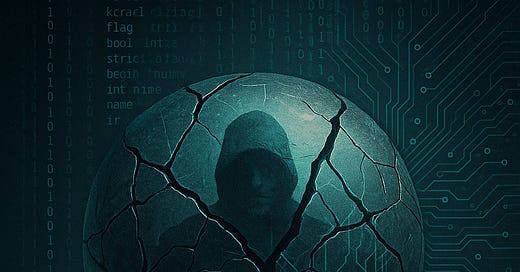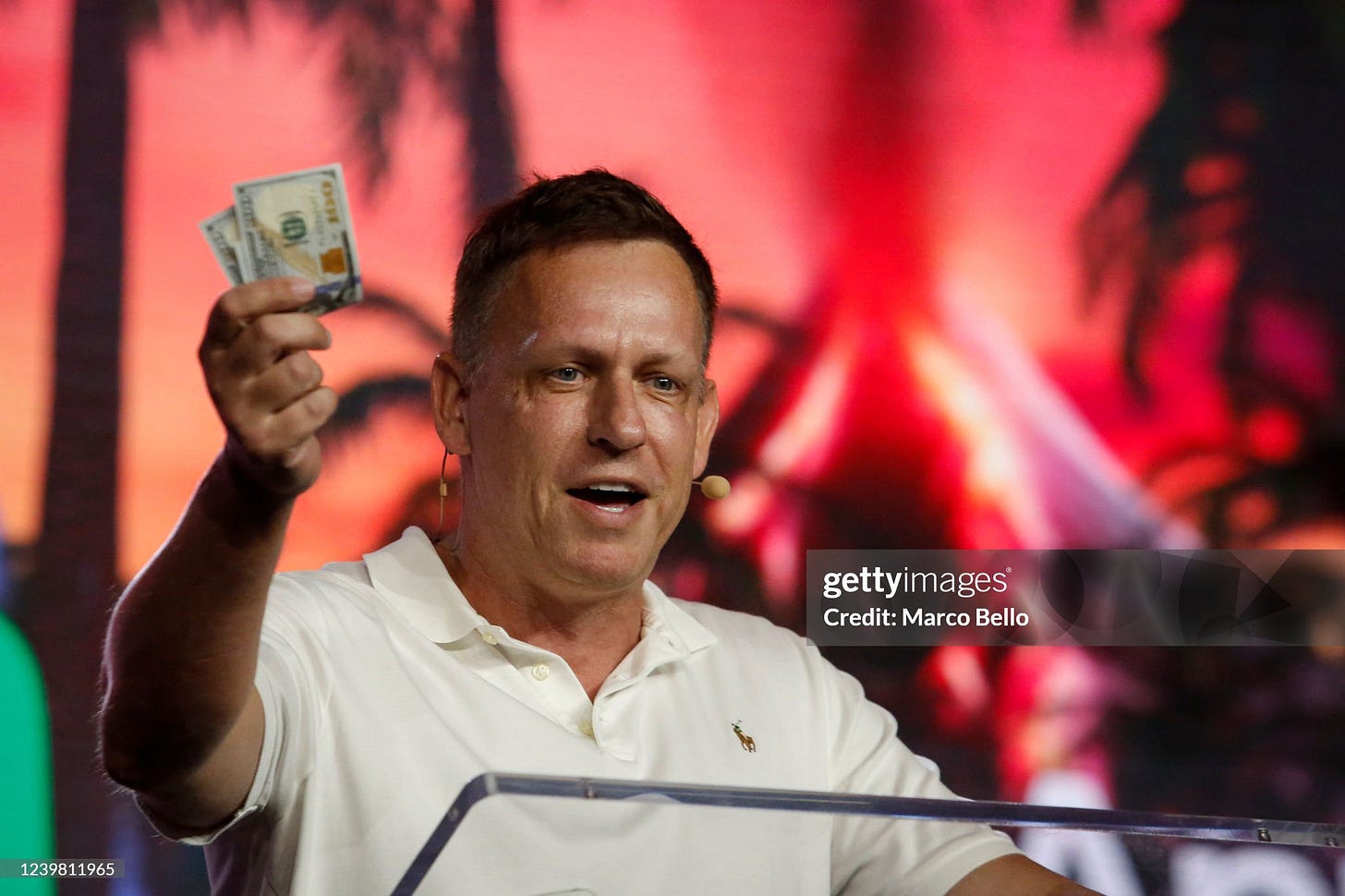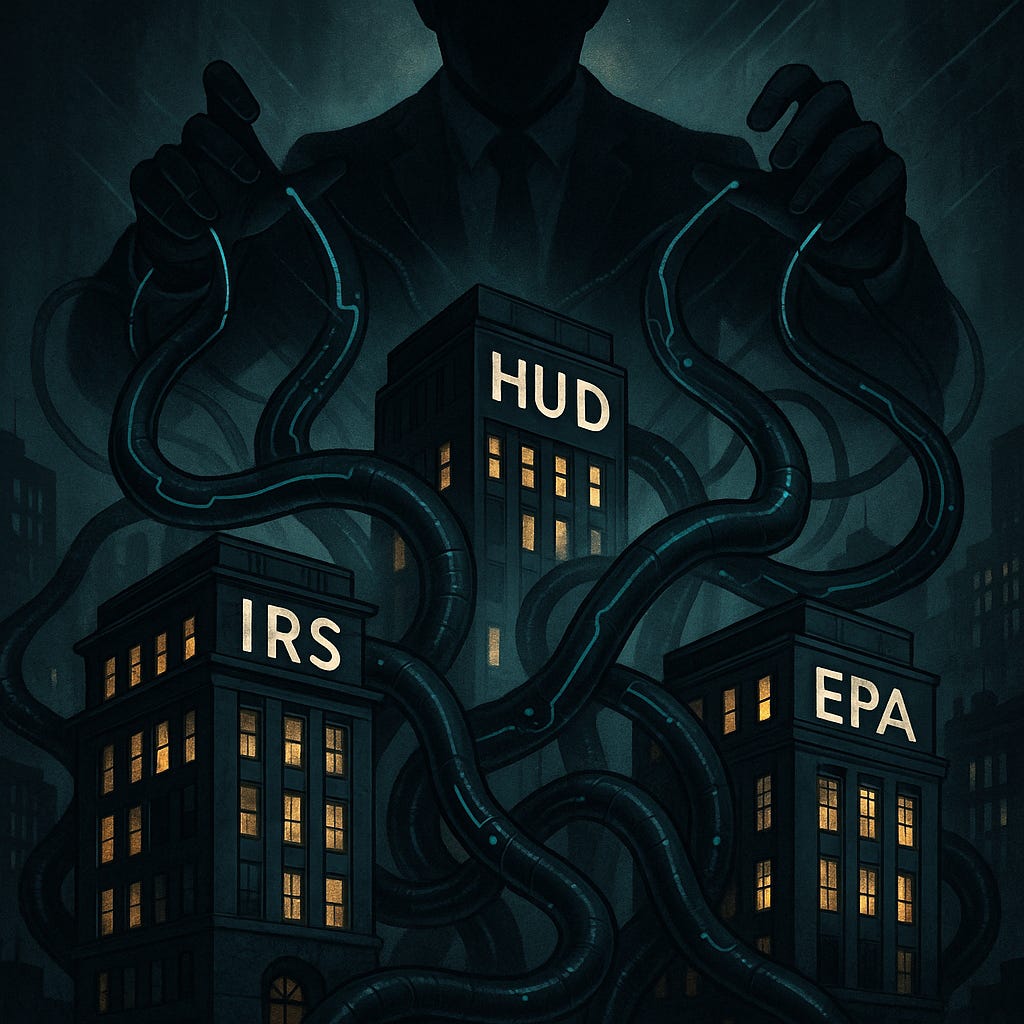The Architect: Peter Thiel’s Long Game for Control
He built the future he wanted—from PayPal to Palantir to the White House—without ever needing your vote.
Everyone knows Elon Musk. You can’t avoid him; he’s loud, erratic, and always somewhere between a meme and a meltdown.
But the one you need to know? Peter Thiel.
You’ve probably never heard him speak. He doesn’t rant on X, start flame wars, or court attention. He doesn’t want your applause. He wants your infrastructure.
If Musk is the spectacle of power, Thiel is the silence behind it.
He doesn’t tweet. He engineers. And what he builds lasts.
We just hit 13,000 subscribers—thank you! We’re offering full access to The Coffman Chronicle at 50% off to celebrate.
Get exclusive analysis and fearless reporting you won’t find in corporate media.
Support truth. Stay informed.
A Man Without a Country
Peter Thiel was born in Frankfurt, Germany, in 1967, but his childhood unfolded across continents. Due to his father’s work as a chemical engineer, his family frequently moved from the United States to South Africa, Namibia, and eventually to California. His early schooling took place under authoritarian, often violent disciplinary systems in apartheid-era regimes—environments where obedience was enforced, conformity was rewarded, and dissent was punished.
By the time he landed in the U.S. for good, Thiel was brilliant, isolated, and primed for a worldview where control wasn’t just a preference but a necessity. A math whiz and chess wunderkind, he didn’t make waves.
At Stanford, he co-founded The Stanford Review, a conservative-libertarian student publication that criticized multiculturalism, feminism, and “political correctness.” There, he sharpened a philosophy that would define the rest of his life: systems must be designed to favor the strong.
A man without a country, perhaps. But not without ambition.
We briefly touched on Thiel’s South Africa connection and his influence in this reporting from February.
Note: This article is over 45 days old and now lives in our archive. Consider becoming a paid subscriber for the full 500+ article archive, exclusive content, and occasional early access.
The Making of a Technocrat
After Stanford, Thiel dabbled briefly in law and high finance before co-founding Confinity, which built cryptographic security tools for PalmPilots. That project evolved into PayPal, which merged with Elon Musk’s X.com in 2000. While ousting Musk and pulling the platform through the dot-com crash, Thiel helped design the company’s early fraud detection systems and pattern recognition tools that mapped behavioral anomalies to flag risks. When PayPal was acquired by eBay in 2002, Thiel pocketed tens of millions and walked away with something far more potent than a payday: a blueprint.
His next endeavor was launching Clarium Capital, a hedge fund that soared in the early 2000s and then crashed spectacularly after the 2008 financial crisis. He had made bold, contrarian bets against oil prices, market resilience, and conventional wisdom and lost.
But Thiel didn’t walk away humbled. He walked away convinced: If he failed, the system was flawed. Not him.
The problem, as he saw it, wasn’t miscalculation. It was democracy. Regulation. Mass behavior. The collapse didn’t disprove his worldview. It hardened it.
Markets couldn’t be trusted. Governments were incompetent. And the only way to prevent collapse was to build a world where decisions weren’t made by the many, but by the smartest few.
Clarium had crashed.
PayPal was sold.
But Palantir was coming.
We’ve reported on the PayPal Mafia before. See our article here:
Note: This article is more than 45 days old and now lives in our archive. Consider becoming a paid subscriber for the full 500+ article archive, exclusive content, and occasional early access.
Power Through Code
Thiel didn’t need a background in national security or even intelligence. He had something far more appealing to the post-9/11 intelligence community: a Silicon Valley tool that promised to do what bloated government systems couldn’t—connect the dots, predict threats, and move fast.
After 9/11, Washington was flooded with terror-driven urgency and a desperate need for technological solutions. Thiel pitched Palantir, a platform built on fraud detection logic from PayPal, as the answer. The CIA’s venture arm, In-Q-Tel, invested early. Palantir was sold as sleek, scalable, and unburdened by civil liberties. It delivered control without red tape or reflection.
Thiel was new to the game, but that didn’t matter. What mattered was that he would do what was asked, without hesitation.
And in that moment of fear, that was the sale.
What he’s built in the US intelligence apparatus is disturbing in scale. Palantir—named after the seeing stones in The Lord of the Rings—was designed to give governments the power to watch, map, and predict. It’s embedded in nearly every federal intelligence agency and even some police stations. In Tolkien, the palantíri corrupted those who used them, giving the illusion of clarity while slowly warping their vision.
Thiel chose that name on purpose, either because that was the goal or because he believes he alone can control it.
And the platform? He named it Gotham.
See our previous reports on Palantir here:
The Ideologue
By 2009, Thiel no longer needed to hide the ideology behind his products. In a now-infamous essay published in Cato Unbound, he declared:
“I no longer believe that freedom and democracy are compatible.”
“Since 1920, the vast increase in welfare beneficiaries and the extension of the franchise to women have rendered the notion of ‘capitalist democracy’ into an oxymoron.”
“The fate of our world may depend on the effort of a single person who builds or propagates the machinery of freedom that makes the world safe for capitalism.”
These are not the words of someone who sees equality as progress. They are the words of a man who views democracy as an obstacle to be worked around. The irony is that by the time he published them, he was already embedded inside the system that his ideology rejected.
In a follow-up essay that May, Thiel wrote: “Politics is about interfering with other people’s lives without their consent.”
And then he spent the next fifteen years doing precisely that, on a national scale.
The CIA, the NSA, and the FBI were using Palantir. He had the contracts, the access, and the infrastructure. The real danger wasn’t what Thiel believed; it was how many democratic institutions had come to depend on the systems he built.
The Puppetmaster
The most dangerous thing about Peter Thiel is not that he has ideas. It’s that they’ve been operationalized.
For someone who claims to hate politics, Thiel is remarkably entangled in it. Palantir’s not just in Langley. It’s in law enforcement, welfare, immigration, and health data. In addition to his agency involvements, he helped bankroll J.D. Vance’s Senate run and Blake Masters’ Arizona campaign. He cultivated candidates not to lead but to implement. With Vance now Vice President, Thiel’s ideology has entered the bloodstream of the Executive Office.
Thiel knows how to play a narcissist. Drop the idea. Let it echo back. Stay out of the spotlight. Let others think they’re in control.
Trump gets to bellow. Vance gets to nod. Thiel gets the policy, without the blowback.
And if Trump falters or fades? Vance is the long game, not because he’s brilliant, but because Thiel needs obedience.
Thiel’s not trying to be president. He’s building the next one and the systems to control whoever is in power.
He doesn’t just operate through institutions. He shapes people—and punishes enemies.
The Shadow Network
In 2016, it emerged that Thiel had secretly bankrolled Hulk Hogan’s lawsuit against Gawker Media, leading to its bankruptcy. His motivation? Revenge. Gawker had outed him as gay in 2007. Nine years later, Thiel made his move and sent a message: I don’t forgive, and I don’t forget.
Silicon Valley, usually loud with opinion and ego, has been remarkably quiet about Thiel. Not because they agree with him, but because they recognize a threat when they see it. No one in the PayPal Mafia calls him out. Musk might, eventually, for attention. The rest stay silent.
They’ve seen what happens to those who don’t.
Recently, NPR received a letter co-signed by 13 former Palantir employees who argue that the company’s work within the current administration goes against their founding principles to “protect Western democracy.” Based on Thiel’s own statements, even before he co-founded the company, it is hard to believe that it is in the mission statement, or that anyone who has worked with him since his Cato manifesto would think it still applies.
Despite his intelligence insider connections, the FBI reportedly investigated him in 2019 for his venture capital business dealings. By 2021, he became an FBI informant, sharing intelligence about foreign ties in Silicon Valley.
Was it damage control? Leverage? Or both? Whatever the answer, the result was the same: he stayed on the inside.
He doesn’t live lavishly like other billionaires. He prefers New Zealand bunkers to LA galas. He wears what he wants, funds what he believes, and stays out of frame. His investments tell the story: life extension, seasteading, cannabis markets, private AI, and political candidates. Not wealth for wealth’s sake but power for permanence’s sake.
Even his philanthropy follows the pattern. The Thiel Foundation, established in 2005, funds dropouts, disruptive science, and post-political thinkers. It doesn’t build community. It creates alternatives to it.
The Shadow Puppeteer
Peter Thiel isn’t running for office. He doesn’t need to.
He has the megaphone (Trump), the mouthpiece (Vance), and the machine (Palantir).
He doesn’t want the spotlight. He wants to own the room it shines in.
In Watchmen, Ozymandias fakes an alien invasion to unite the world against a common threat.
Thiel didn’t need fiction. He built the software to find real “aliens”—those undocumented, unwanted, undesirable—and helped wire that logic into the state.
Both men acted from a belief that humanity couldn’t save itself.
Both reshaped society through fear.
And both believed that made them heroes.
History may debate whether Peter Thiel is a villain or a visionary.
Either way, he’s already redesigned the battlefield.
Quiet. Invisible. Permanent.
And so is he.
We don’t have to wonder what his plan is.
It’s already in place. It just doesn’t need your permission.
We just hit 13,000 subscribers—thank you! We’re offering full access to The Coffman Chronicle at 50% off to celebrate.
Get exclusive analysis and fearless reporting you won’t find in corporate media.
Bibliography:
Thiel, Peter. “The Education of a Libertarian.” Cato Unbound, April 13, 2009.
Thiel, Peter. “Your Suffrage Isn't in Danger. Your Other Rights Are.” Cato Unbound, May 1, 2009.
“Peter Thiel.” Immigrant Entrepreneurship. Accessed May 6, 2025.
Greenberg, Andy. “How A 'Deviant' Philosopher Built Palantir, A CIA-Funded Data-Mining Juggernaut.” Forbes, August 14, 2013.
“Israel-linked CIA-funded Palantir goes public, making espionage mainstream.” TRT World, September 30, 2020.
“Palantir, the CIA-funded tech firm, is going public.” Freetrade. Accessed May 6, 2025.
Mac, Ryan. “Exclusive: Tech Billionaire Peter Thiel Was an FBI Informant.” Business Insider, October 19, 2023.
Robertson, Adi. “Peter Thiel was reportedly an FBI informant.” The Verge, October 19, 2023.
Hern, Alex. “PayPal co-founder Peter Thiel admits to bankrolling Hulk Hogan's Gawker lawsuit.” The Guardian, May 26, 2016.
Mac, Ryan. “Peter Thiel's Lawyers Now Say He Was Financially Motivated In Funding Hulk Hogan's Gawker Lawsuit.” Forbes, April 18, 2017.
“Bollea v. Gawker.” Wikipedia. Accessed May 6, 2025.
“Peter Thiel: the billionaire tech entrepreneur on a mission to cheat death.” The Telegraph, September 20, 2014.
“Thoughtcrime With Mike Solana - Cyber Patterns.” Cyber Patterns. Accessed May 6, 2025.
“Peter Thiel is trying to save the world: The apocalyptic theory behind his investments.” Yahoo Finance, October 7, 2016.
“Under Trump and Musk, billionaires wield unprecedented influence over US national security.” The Guardian, April 6, 2025.
“Peter Thiel and the Authoritarian-Libertarian Alliance for Trump.” New York Magazine, October 20, 2016.











Peter Thiel is a very dangerous oligarch and has his hands in JD Vances pants 👖
Peter Theil is definitely the man behind the mask. The more I read about him, the more disgusting I think he is.